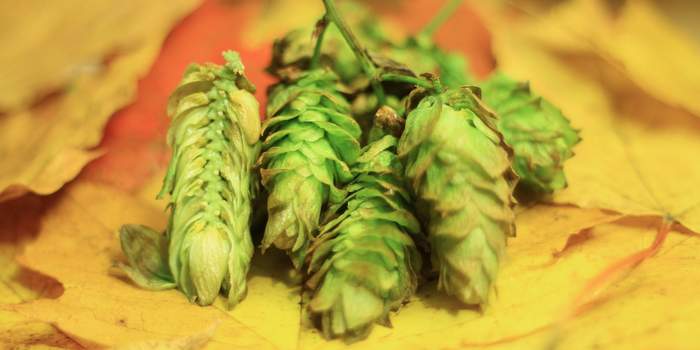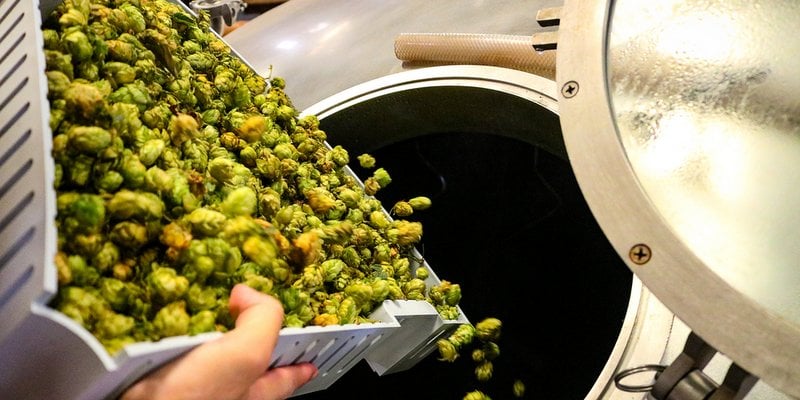
RipeLocker, a leader in extending the post-harvest life of perishables, announced late last year that its technology that can extend the life of fresh hops by six weeks. Tests were conducted last fall in collaboration with CLS Farms, which provided 240 pounds of its fresh Comet and El Dorado hops, and Thomas Hooker Brewing Company, which ultimately brewed “Cultivate” beer with the fresh hops.
A valuable and highly perishable flower, fresh hops in the past needed to be used within a day of harvesting. When using RipeLocker managed-atmosphere containers to store the hops, the fresh hops retained their original form, color and aroma six weeks later. This is significant for hop growers, hop dealers, breweries and consumers.
RipeLocker Technology. The RipeLocker is a cost-effective, pallet-sized, managed-atmosphere container. The ultra-low oxygen containers suppress pathogen growth, resulting in significantly less decay. The company tailors operating parameters, such as internal pressure, CO2 and oxygen levels, to optimize longevity and freshness for the specific needs of each perishable stored inside. In addition, the company can monitor and change holding parameters real-time to prevent damage from occurring. The RipeLocker is engineered from the ground up using recycled materials and is reusable.
“With RipeLocker, we can now provide brewers with our various coveted fresh CLS Farms hops at a good price for up to six weeks. This means they can extend their brewing seasons even into the holidays,” said Claire Desmarais, fresh hop director at CLS Farms, which is based in the Yakima Valley of Washington state. “The Yakima Valley is a hotbed of hop growers, providing about 75% of the hops in the US. RipeLocker maintains the quality of the fresh hops, enabling CLS Farms to better serve its fresh hop customers, not only in the US, but around the world.”
Yakima Quality Hops, a hop dealer that provides high-quality hops to breweries throughout the United States and abroad, helped facilitate the collaboration between RipeLocker, CLS Farms and Thomas Hooker Brewing Company.
With RipeLocker technology, hop growers and packers can now sell more fresh hops, at higher margins than dry hops, and supply distant markets such as Asia. Hop dealers, who often facilitate deals between hop growers and brewers, can now have more fresh hops to sell. Brewers can source more fresh hops for longer lengths of time and avoid costly, and environmentally unfriendly, overnight air freight. Consumers, moreover, are able to enjoy fresh hop craft beers for longer seasons.
At a global level, fresh hops grown in the Southern Hemisphere can now be much more readily available to brewers in the Northern Hemisphere, and vice versa. The new six-week lifespan, and possibly longer, enabled by RipeLocker technology also means that fresh hops can now be shipped via conventional methods such as cargo ships, railways and trucks. This has relevant cost benefits and is better for the environment than air freight.
“If RipeLocker technology can do this for fresh hops, an item that has never been preserved in its fresh form before, we trust it can do this for any produce or cut flower,” said George Lobisser, CEO and co-founder of RipeLocker. “We are very pleased with the outcome of the fresh hop test and believe RipeLocker technology will be a real game-changer for the hop industry as well as the perishable business in general.”




Leave a Reply
You must be logged in to post a comment.